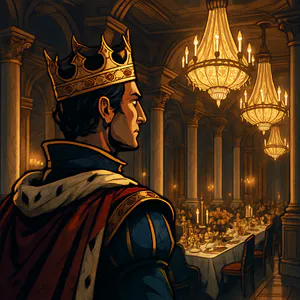Generate royalty names
More Real Name Generators- <% result.name %>
Discover all Story Shack apps
Crowning Your Title
To craft a royal name, consider:
- Which title—King, Queen, Prince, Princess—fits?
- Do you want a noble house name?
- Should it reflect your realm’s culture?
- How many names sound appropriately grand?
- Will it inspire loyalty or fear?
Royalty Name FAQs
Answers for regal naming:
How are names generated?
It combines royal titles with dynastic surnames for majestic effect.
Can I choose title?
Regenerate until the desired title appears; no direct filter.
Are names authentic?
They follow medieval fantasy conventions for royal naming.
How many names?
Unlimited—click to fill your courts.
How do I copy or save?
Click to copy or heart to save favorites.
What are good royalty names?
There's thousands of random royalty names in this generator. Here are some samples to start:
- Humban-Haltash Hla
- Astarymus Mubin
- Daluobian Argyros
- Krok Svetoslav
- Imsu Magnusson
- Thyra Tzimiskes
- Valeria Chalcis
- Guntheuc ab Seisyll
- Salin Danebod
- Margarita Danebod
About the creator
All idea generators and writing tools on The Story Shack are carefully crafted by storyteller and developer Martin Hooijmans. During the day I work on tech solutions. In my free hours I love diving into stories, be it reading, writing, gaming, roleplaying, you name it, I probably enjoy it. The Story Shack is my way of giving back to the global storytelling community. It's a huge creative outlet where I love bringing my ideas to life. Thanks for coming by, and if you enjoyed this tool, make sure you check out a few more!


























































